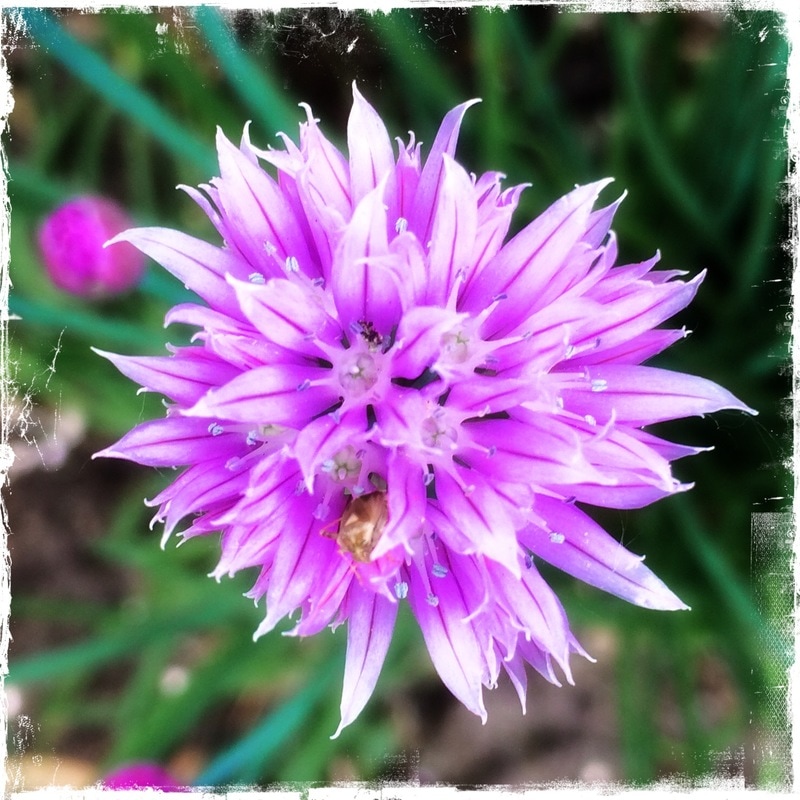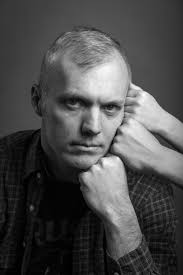ASSAY: A JOURNAL OF NONFICTION STUDIES
4.1
4.1
|
Where to begin? We know how this ends. I was unprepared for Brian Doyle's early departure from this life, and I mourn him deeply and still feel sudden pangs of sadness sometimes. Eulogies and obituaries being what they are, pitched high to remember (and exaggerate) only the deceased’s virtues, I feel to claim that despite the fact that nearly everybody eventually becomes flawless in their love for others and laughter and infectious joy, Brian really was all of those things, in an abundance I think I have never encountered elsewhere. His life was a tireless battle against hate and violence and despair, and through his writing and speaking he enlisted allies to fight with him. Every essay, proem, novel, email, talk, presentation nudged the universe forward one millimeter, as he liked to say, brought the rest of us closer to enlightenment.
He wrote thousands of essays (no exaggeration), which tempers my sorrow a little bit (there will always be more to read), including seven that were discovered and recognized as Best American Essays. I will talk here about the last, the most recent of these, “His Last Game,” which appeared in Notre Dame Magazine in Autumn 2012. Since then, it has been available online, and it now includes a new header about Brian’s death, so I will hope and assume that it will remain available. Please go read the essay now. I’ll wait. Welcome back. Are you a bit misty eyed? Got tears tracking down your cheek? I know the feeling. Happens to me every time I read this piece. In fact, I’d be fine if you just signed off now, leaving me to my rambling without your audience. My main hope is simply to get more people reading Brian’s work, so if I’ve accomplished that, I consider this piece a success. But let’s take a look at a few of the essay’s features, not to take it all apart, but to get a sense of how it’s working. First of all, I note the conversational tone, evidenced perhaps most clearly in its repetition of drive in its many forms (three instances in the first sentence alone, followed by an essentially verbatim quote across the first and second): We were supposed to be driving to the pharmacy for his prescriptions, but he said just drive around for a while, my prescriptions aren’t going anywhere without me, so we just drove around. We drove around the edges of the college where he had worked and we saw a blue heron in a field of stubble, which is not something you see every day, and we stopped for a while to see if the heron was fishing for mice or snakes, on which we bet a dollar, me taking mice and him taking snakes, but the heron glared at us and refused to work under scrutiny, so we drove on. We drove through the arboretum checking on the groves of ash and oak and willow trees, which were still where they were last time we looked, and then we checked on the wood duck boxes in the pond, which still seemed sturdy and did not feature ravenous weasels that we noticed, and then we saw a kestrel hanging in the crisp air like a tiny helicopter, but as soon as we bet mouse or snake the kestrel vanished, probably for religious reasons, said my brother, probably a lot of kestrels are adamant that gambling is immoral, but we are just not as informed as we should be about kestrels. Despite how it thrusts readers into the midst of physical action, the first paragraph feels like it’s revving the emotional engine a bit, but not in a bad way. It’s finding a road into the difficult story of Kevin Doyle’s imminent death and one of the last times his brother Brian got to see him. The essay’s title and the first sentence’s mention of prescriptions elicit an “uh oh,” and the playful betting and the author’s noticing things one does not see every day both seem important enough to hold in the back of our minds as we continue driving with the two brothers.
Noticing, with them, not only unusual things but steady, unchanging things, like trees and wood duck boxes, which offer a sense of (or illusion of) permanence during what, it becomes increasingly obvious, is a time of transition for the author and his brother. In the second paragraph, the transition appears in a few ways, both geographical and temporal: “We drove deeper into the city…” and “By now it was almost evening…” It’s obvious enough to mirror the transition of life into death, but it’s also simple enough for us to recognize that our lives are filled with transitions, large and small, like walking through the door from the living room into the kitchen. Hold on a moment while I put this in reverse: I realize that the story the essay tells pulls at our heartstrings, and even in the course of a mere 1100 words, we get to know Kevin and love him and wish he were still among us, the living. But the key to it all comes in Kevin’s answer: “I am looking for something that when I see it you will know what I am looking for.” This is ungrammatical syntax, is it not? And yet it is authentic. It is the way we talk, and I love both its phrasing and its meaning and such phrasing is key to Brian Doyle’s work. It conveys, deeply, the idea that over the short course of events narrated in the essay, Kevin and Brian become one. Or have already become one in their long, brotherly past. Additionally, in this essential sentence-paragraph, Doyle returns to three of his favorite themes. First, that we communicate through so much more than spoken or written language. Second, that there is infinite beauty and meaning in the briefest, least noteworthy moments of life. And third, perhaps only suggested, that the remembered or the written is real, is resurrective, brings back to life what has happened and is lost but to memory and writing. Brian does recognize what Kevin was looking for (neither of them knowing it beforehand, we are led to believe), and thus they stop to admire a three-on-three basketball game. Though the brothers don’t speak, “both of [them] notice” the players’ characteristics, savoring the artistry of the game, especially the savvy of the oldest player, who becomes the subject of yet another bet (that he’ll “snake the kid somehow,” snake being the operative, reminiscent word), and then the game ends on the old player’s cunning shot, and the brothers drive again, towards home with perhaps a pit stop to get the prescriptions, and on into a long last paragraph of conversation. Since we know that there is more to Kevin and Brian’s drive than simply spending time together, we take greater meaning in the older player: The older man grew visibly weary as we watched, and my brother said he’s got one last basket in him, and I said I bet a dollar it’s a shot from the corner, and my brother said no, he doesn’t even have the gas for that, he’ll snake the kid somehow, you watch, and just then the older man, who was bent over holding the hems of his shorts like he was exhausted, suddenly cut to the basket, caught a bounce pass, and scored, and the game ended, maybe because the park lights didn’t go on even though the street lights did. During which Kevin speaks to Brian’s silence or supposed unwritten answers. He’s both trivial and profound, with quick shifts from the events of the day to extrapolated interpretations to melancholy boyhood memories of “shooting baskets at night and the only way you could tell if the shot went in was the sound of the net.” “Remember…?” he asks Brian again and again, leading to his poignant request: “What happens to what I remember? You remember it for me, okay?”
In this, the transformative union of the two men is complete. Kevin has entrusted his memories to his younger brother, as if saying, “Brother, into thy hands I commend my spirit.” What’s more, in writing this essay, Brian has fulfilled his brother’s wish. He becomes Kevin’s memory keeper. And you remember that old man snaking that kid. Stupid kid, you could say, but that’s the obvious thing. The beautiful thing is the little thing that the old guy knew full well he wasn’t going to cut around picks and drift out into the corner again, that would burn his last gallon of gas, not to mention he would have to hoist up a shot from way out there, so he snakes the kid beautiful, he knows the kid thinks he’s old, and the guy with the hat sees him cut, and gets him the ball on a dime, that’s a beautiful thing because it’s little, and we saw it and we knew what it meant. In 2012, when Kevin died, Brian knew, of course, that he, too, was mortal, but he had no inkling that he would die just five years later. His brain tumor was discovered only in mid-November 2016, and despite surgery and radiation and chemotherapy, he died a scant six months later. In this essay, Brian takes upon himself the sacramental task of keeping his brother’s memories. Now that Brian is gone, perhaps we, through our reading and our thinking, can likewise remember his memories for him. I use the ambiguous pronoun his intentionally. We can do this by reading his essays, and thus bringing ourselves a few millimeters closer to enlightenment.
|
|
Patrick Madden, author of Sublime Physick (Nebraska, 2016) and Quotidiana (Nebraska, 2010), teaches creative nonfiction at Brigham Young University. His essays have appeared in the Iowa Review, Portland Magazine, Fourth Genre, Hotel Amerika, and other journals, as well as in the Best Creative Nonfiction and the Best American Spiritual Writing anthologies. He co-edited After Montaigne: Contemporary Essayists Cover the Essays (Georgia, 2015) with David Lazar and co-translated Eduardo Milán's Selected Poems (Shearsman, 2012). He maintains an anthology of classical essays and essay resources at http://quotidiana.org/.
|

